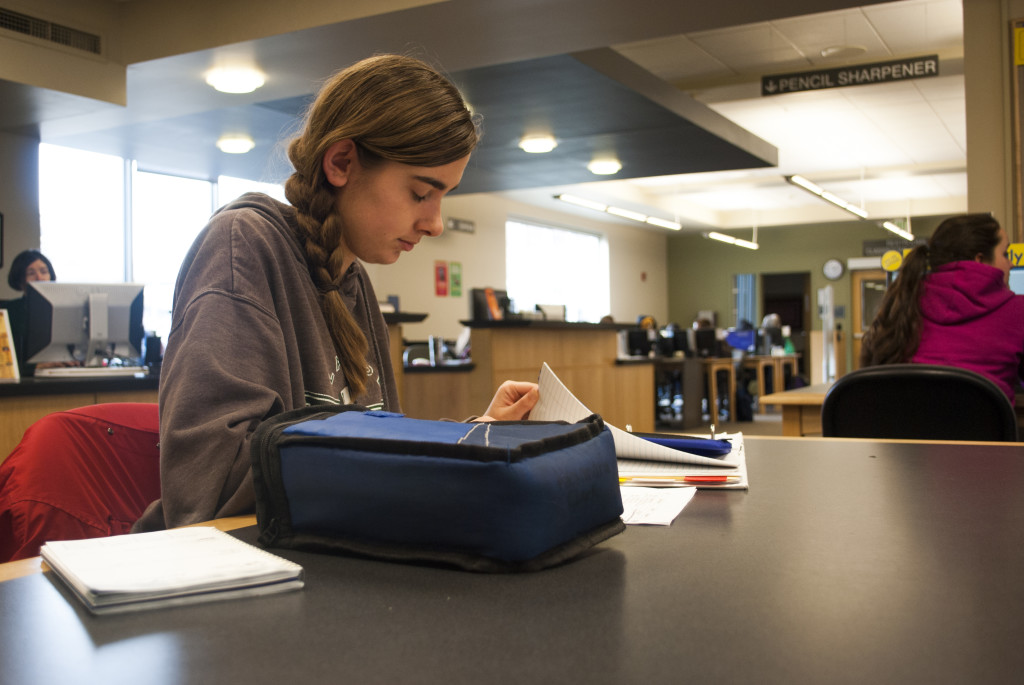By Ron Ford,
The stress of approaching finals can be a major source of anxiety for many students who have their academic futures at stake. However, there are some simple, practical things you can do to minimize that anxiety and maximize retention of material.
Pete Wildman, a math instructor at SFCC who also teaches workshops on test anxiety, said test anxiety is a very real problem, and not just for beginning students.
“I see test anxiety on a large number of levels,” Wildman said. “I might expect test anxiety with developmental math, but I also see test anxiety in calculus classes, which I am a little more concerned about, because those students have already been successful to some degree.”
Being nervous before a big exam is normal, according to Dr. Daniel K. Hall-Flavin of the Mayo Clinic. It is only when it affects exam performance adversely that it becomes a problem.
“With test anxiety, feelings of worry and self-doubt can interfere with your test-taking performance and make you miserable,” Hall-Flavin wrote.
John Fuller, an SFCC student, said he feels anxiety before and during exams.
“I definitely get a little anxious before a test,” Fuller said. “My nerves disrupt my thought process and kind of put me on edge.”
Fuller said, for him, the anxiety can be helpful in studying and preparing for an exam but not so much during the exam itself.
“Studying beforehand isn’t really an issue,” Fuller said. “When I sit down in the moment, though, it all kind of hits me and I get a little anxious.”
In those moments, Fuller steps back a little to counter the anxiety.
“I take a deep breath and regroup. I just take it one question at a time.”
Wildman said most students don’t look over the whole exam before beginning. That, he says, is a mistake.
“First thing, skim the exam,” Wildman said. “Find the easier problems, the ones you know, and do those first.
“Otherwise you may get stuck on an earlier but harder problem that takes up all your time. Go back to it if you have time, but remember, it is only one problem of many.”
The study habit tips below were suggested by the Mayo Clinic, Study Guides and Strategies, Test Prep review and testtakingtips.com in separate articles.
[twocol_one]
Before the test:
- Get plenty of sleep.
- Don’t go to your exam on an empty stomach.
- Don’t cram at the last minute. Take time each day to study the week before.
- Get some exercise to promote alertness.
- Know the material. Be well-prepared.
[/twocol_one]
[twocol_one_last]
During the test:
- Breathe!
- Read all instructions carefully before beginning.
- If stuck on a question, skip it and move on. Come back to it if you have time.
- Don’t worry that others are finishing before you. It’s not a race.
- Recognize that anxiety is part of the process and don’t let it overwhelm you.
[/twocol_one_last]
